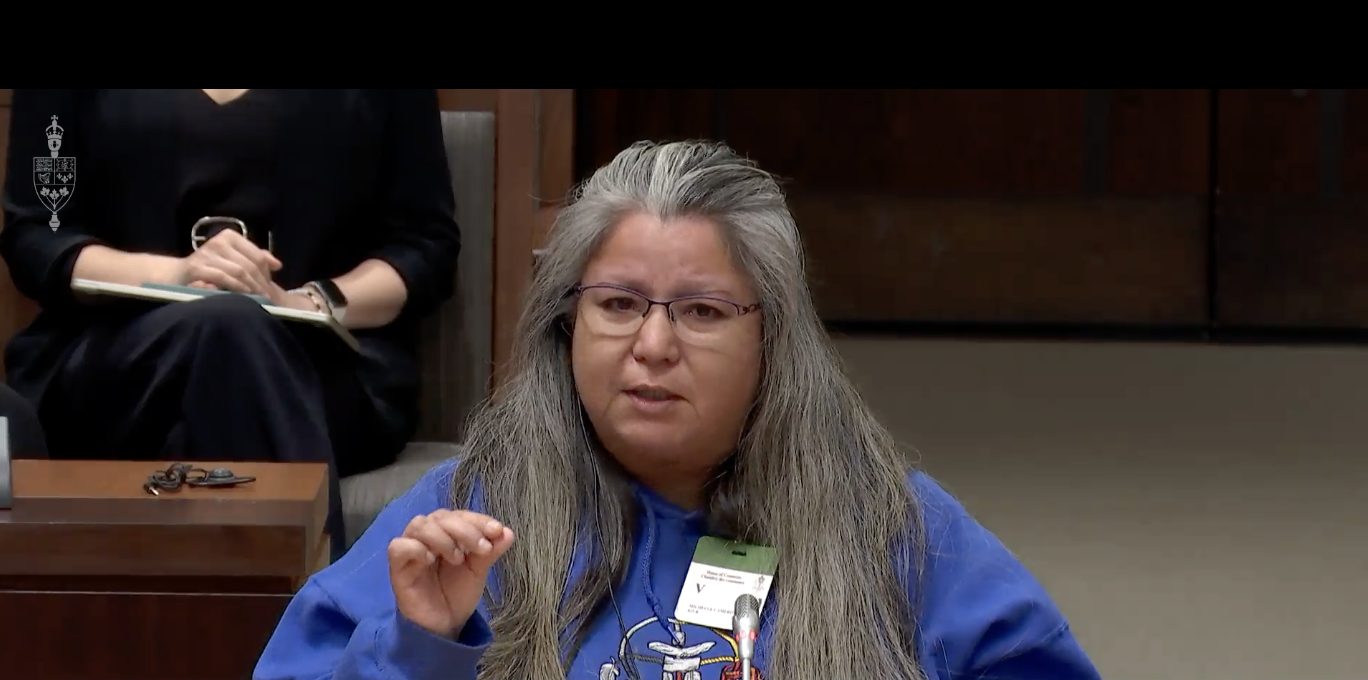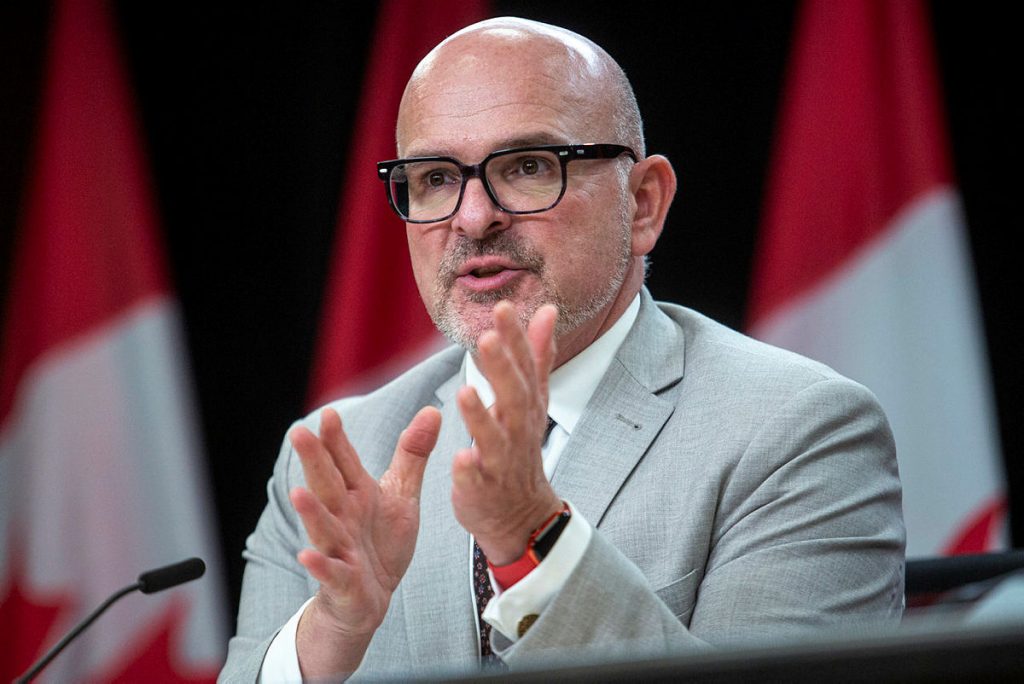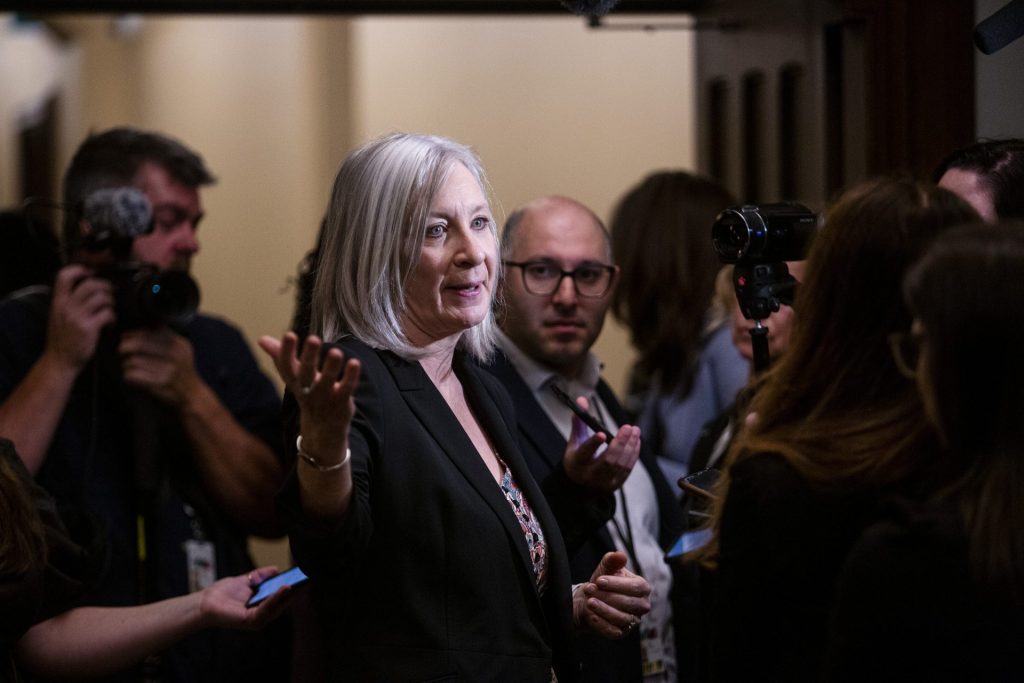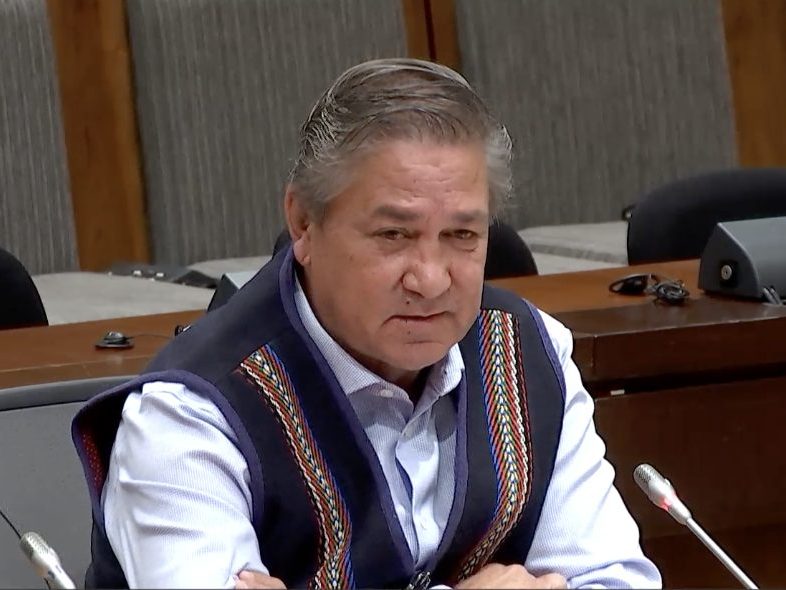‘We need deterrence’: Indigenous researcher tells MPs Boissonnault should be kicked from Liberal caucus

An Indigenous advocate investigating identity fraud says former minister Randy Boissonnault should be removed from the Liberal caucus amid allegations his former company falsely claimed Indigenous status in bids to secure federal funds.
Crystal Semaganis leads the Ghost Warrior Society, a grassroots collective investigating fraudulent claims of First Nations, Métis, and Inuit identity. She appeared at the House Government Operations and Estimates for a second time on Nov. 28 as part of its probe into issues around Indigenous procurement.
Semaganis said Boissonnault (Edmonton Centre, Alta.) should not remain in the Liberal caucus following reports that Global Health Imports—which the ex-minister previously co-owned—described itself as “wholly Indigenous-owned” in bids for government contracts under a federal set-aside program for Indigenous businesses. He resigned from cabinet on Nov. 20 overhead of the controversy.
Public Services and Procurement Canada suspended the medical supply company from receiving government contracts for three months, effective Nov. 22. Boissonnault resigned from cabinet on Nov. 20.
Conservative MP Garnett Genuis (Sherwood Park-Fort Saskatchewan, Alta.), who previously wore a piece of paper saying “Fire Randy” in the House of Commons, asked Semaganis about her call for consequences and whether that extended to Boissonnault.

“Do you think he should remain in the Liberal caucus or not?” asked Genuis.
“No, I do not believe he should be,” she replied. “It is a significant breach to trust, misrepresentation.”
“The entire situation is indicative of what happens when you have absolutely no deterrence for claiming Indigenous identity falsely. When you have absolutely no mechanisms in place to affirm these, then you have exploitations.”
Boissonnault, who had previously identified himself as a “non-status adopted Cree,” has denied ever using his Indigenous ties to benefit from government contracts, and apologized for the ambiguous presentation of his heritage. Yet the controversy has left many questioning his integrity and the government’s oversight of its procurement processes.

Semaganis stressed that allegations—of exploiting Indigenous identity or making false claims to secure federal funds—are particularly harmful to Indigenous Peoples, when those involved hold significant political power.
“We need deterrence, we need frameworks, we need dispute mechanisms in place,” Semaganis said.
Semaganis also told MPs that her group believes $2.6-billion has been pilfered by corporations and individuals pretending to be Indigenous. She broke down in tears as she talked about the real-life impact of the misappropriation of funds, which she said could have gone to support communities in need, like combatting food insecurity in the North, providing clean drinking water, and addressing child welfare issues.
The Indigenous advocate highlighted that researching the cases related to Indigenous procurement is challenging due to the lack of information in government databases to authenticate these businesses.
“You tell us that these are the colonial mechanisms that are going to rule us, and you do not listen to us when we are telling you these people are not Indigenous. This is an exploitation that’s billions of dollars, and you are robbing my people of our true place in this society,” she told MPs. “We are here to say: ‘enough.’”
Over the past year, successive media reports and testimony from Indigenous community leaders revealed loopholes that have allowed non-Indigenous firms to benefit from the Procurement Strategy for Indigenous Business by self-identifying as Indigenous, or by using so-called “rent-a-feather” schemes where an Indigenous person fronts a non-Indigenous company to secure contracts. In 2021, the government announced a new procurement process whereby departments were expected award at least five per cent of contracts to Indigenous businesses.

The government’s Indigenous Business Directory (IBD)—which lists 2,945 verified companies eligible for federal procurement as of Nov. 28—has been under increased scrutiny following reports from media and Indigenous leaders questioning its reliability.
Indigenous Services Minister Patty Hajdu (Thunder Bay-Superior North, Ont.) previously told the committee that 1,100 businesses were removed from the list in 2022. Hajdu said the department audits the indigeneity of businesses every two years as they “transform quite a bit in between audits.”

But, Marc LeClair, senior adviser at Manitoba Métis Federation told MPs that Ottawa’s procurement strategy has not been effective for “a lot of years,” and the “database of businesses was contaminated right from the start.”
LeClair told MPs it is “not complicated” for Métis organizations to verify who belongs to their community.
”It’s very clear who we are, and also who’s not Métis,” he said, adding their verification methods work on both people and businesses. He said it is “critical” for that verification to be done for a successful procurement system.
Jacob Beaton, a First Nations entrepreneur who provides advice to the Auditor General of B.C., said the explanation for why Ottawa’s approach to Indigenous procurement is “not working” extends beyond identity fraud.
Beaton told MPs “it is easy to fake” Indigenous identity, but added it’s also “easy” to verify, to audit companies, and score them.
“Current systems and policies encourage corruption and fraud,” he said, adding it’s “a common practice for existing non-Indigenous businesses to grab an Indigenous equity partner” just for the purposes of securing a bid.
Beaton explained that other examples include creating joint ventures between Indigenous and non-Indigenous partners, where the majority of the operating power is given to non-Indigenous partners. He also noted that many First Nations are struggling with capacity issues and lean heavily on non-Indigenous partners.
“Critically, there’s no active auditing, oversight, or enforcement” Beaton said, adding “it’s common practice for promises to be made in a bid and then not delivered, and there to be no consequences for that.”
ikoca@hilltimes.com
The Hill Times






 LICENSING
LICENSING PODCAST
PODCAST ALERTS
ALERTS













